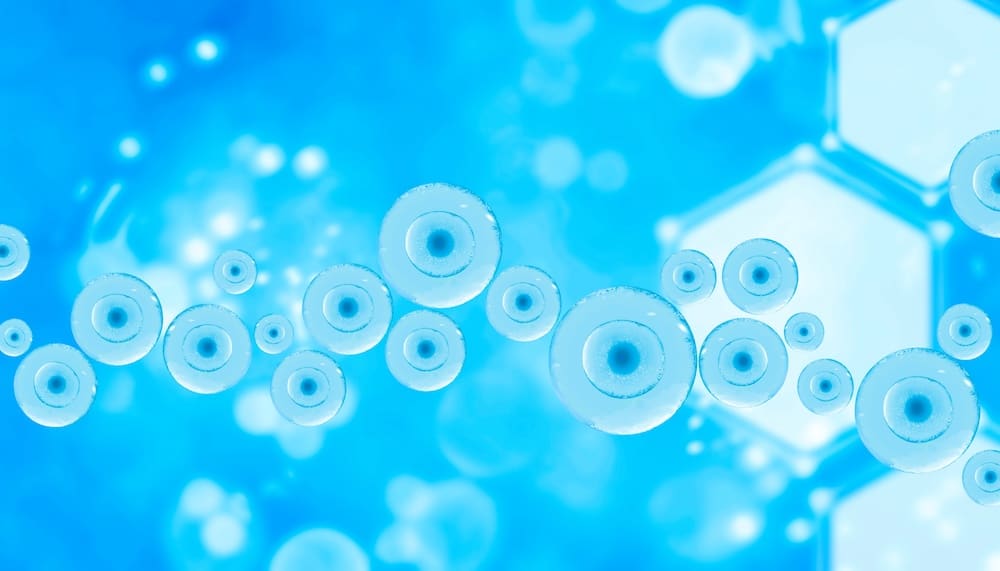About 10-15% of individuals struggle with infertility. However, there is hope. For many, in-vitro fertilization (IVF) may be the best or only option to start a family. In this article, we offer a detailed outline of the IVF process from start to finish, so you know what to expect and how it works.
How Long Does IVF Take?
It’s important to note that the IVF process is a unique experience for everyone who undergoes treatment. Some people can get a positive result after one round of treatment. Others require multiple cycles. Meanwhile, some people also may need to seek other options like surrogacy, depending on what’s causing their infertility in the first place.
On average, one cycle of IVF is between six to eight weeks. Some women can become pregnant after one cycle, but typically, most women require 2.7 cycles on average (or 3 cycles in total).
IVF Consultation
When starting the process of IVF, you’ll need to reach out to clinics for a consultation. Choosing a clinic that you feel comfortable with and trust will be a significant relief throughout what can be a very stressful process.
Questions you should seek answers to include:
- What tests are involved in the preparation of IVF treatments?
- Where are the tests performed?
- What is the cost?
- What is the process like?
- What can I do to improve my chances of pregnancy?
- What are the chances of success?
- Should I use fresh or frozen embryos?
- What are the risks and side effects?
- What are other treatment options in case this fails?
Once the consultation is complete, you’ll likely begin the preparation process.
Preparing For IVF
When you begin the process of IVF, you and your partner will typically need some testing to get a better picture of your fertility.
Preparation testing may include:
- Semen analysis
- Infectious disease screening
- Uterine exam, which may include sonohysterography
- Ovarian reserve testing to determine the quality of the eggs
- Mock embryo transfer to determine the size of the uterus
IVF Medication
Once all the testing has been completed and your medical team has a better idea of the whole picture, you will start on IVF medication. The beginning of IVF treatments starts by taking synthetic hormones to stimulate the production of multiple eggs. Some eggs won’t develop normally or respond to fertilization, so multiple eggs will need to be retrieved.
Some medications that may be involved include:
- A follicle-stimulating hormone, luteinizing hormone, or both will need to be administered to stimulate the ovaries.
- hCG will be administered to help the eggs to mature properly during days 8 to 14 after the embryo transfer.
- Medications to prevent ovulation
- Medications to help your uterus to become more receptive to implantation.
Ovarian Stimulation
Once the fertility medications for ovarian stimulation have been given, you may be prescribed estrogen, progesterone, DHEA, or a combination of the three. It typically takes one or two weeks of medication, and ovarian stimulation before your eggs are ready to be retrieved. Doctors can determine if they’re ready by a blood test or vaginal ultrasound.
The IVF cycle may need to be canceled before the egg retrieval part of the process. If there’s premature ovulation, inadequate follicle development, too much follicle development, or other medical issues, the cycle may be canceled, and you may be prescribed alternative medications for a better chance on the next cycle.
IVF Egg Retrieval
There is a small window to complete the egg retrieval, which is 34 to 36 hours after your last injection and before ovulation begins.
Egg retrieval requires sedation and pain medication. A transvaginal ultrasound is performed and helps to identify follicles. A thin needle is inserted to retrieve the eggs. If the transvaginal ultrasound isn’t sufficient, an abdominal ultrasound may also be performed to ensure the needle is in the right place. The eggs are suctioned out with a device attached to the needle. The whole process can take about 20 minutes, and you may feel light abdominal pressure afterward. The eggs are then placed into a nutritive liquid and incubated. The best-looking eggs are mixed with sperm to create embryos that will be ready for transfer.
IVF Trigger Shot
The IVF trigger shot is a common term you’ll hear going through fertility treatment. The trigger shot is an injection of hCG or human chorionic gonadotropin. The pregnancy hormone helps to prepare the ovaries, and it’s ideal for those who don’t ovulate, have weak ovulation, or need to control ovulation.
Sperm Collection
If you are using your partner’s sperm, they will need to provide a sperm sample on the same day as the egg retrieval. Retrieval is typically done through masturbation, but another technique includes testicular aspiration, where a needle is used to collect sperm. Donor sperm can also be used at this time.
IVF Fertilization
There are several fertilization methods for IVF, which include conventional insemination or Intracytoplasmic sperm injection (ICSI). Conventional insemination is when an embryo is created from the sperm and egg being mixed and incubated. ICSI is when sperm is manually injected into a mature egg and is typically used when semen quality or sperm count is compromised. ICSI is also an option if other IVF cycles fail.
Your doctor may recommend other options before an embryo transfer, depending on your circumstances. Assisted hatching and Preimplantation genetic testing are helpful if you’re an older individual or have had multiple failed attempts at IVF.
Embryo Development
The more developed embryos are considered to have a higher pregnancy rate compared to those that are less developed and there is a whole range of embryo grading that embryologists use in order to rank embryos and identify their developmental stage. Not all embryos will survive the development process in the incubator but that is normal and part of the natural process of embryo development. On average, half of the embryos which are created at fertilization, will not make it to Day 5 of development (Blastocyst stage)
Blastocyst Transfer
Blastocyst transfer is a technique to help increase the pregnancy rate while decreasing the rate of multiple births and is a relatively new technology. A blastocyst is a highly-developed embryo that is ready for implantation. This technique refers to the transfer of only embryos that have reached the Blastocyst Stage of embryo development, commonly on Day 5 after fertilization.
Prepare Uterine Lining for IVF
To prepare the uterine lining for IVF, taking estrogen supplements, either with oral medication, suppositories, or patches, helps to get the process started. The addition of exogenous estrogen is often sufficient. Occasionally, your doctor may recommend endogenous estrogen through an rFSH treatment like Gonal-F.
With supplementation, the uterus should be growing a thick endometrial lining, so improving blood flow to the area will improve production further. Regular moderate exercise, reducing caffeine, not smoking, reducing cold and allergy medications, and using acupuncture can help your uterine lining develop healthily. Consult your doctor for other supplements you can add to your routine that can help improve your uterine lining.
Embryo Transfer
An embryo transfer is a quick and non-invasive procedure that involves placing the embryo in the uterus. You may be given a sedative, but it’s not a guaranteed practice. Similar to a pap smear, a speculum is inserted into the vagina, a catheter is inserted through the cervix, and the embryo in a fluid is placed in the uterus. The process takes about 15 to 30 minutes, and then there’s an hour or so given for rest if needed.
IVF Pregnancy Test
After the embryo transfer, it’s recommended that you wait a minimum of two weeks before testing for pregnancy. Due to the increased hormones in your body, you may end up with false results before the two-week wait is complete. Once two weeks are over, visit your doctor for a test for the most accurate results.
FAQs
What are the common IVF side effects?
Much like the spectrum of experiences when it comes to IVF, the symptoms can vary in the same way. Some patients don’t experience any side effects of IVF, and some experience them all. Some potential side effects include:
- Mild bloating
- Mild cramping
- Constipation
- Breast tenderness
- Fatigue
- Leaking a small amount of clear or blood-tinged fluid after the procedure
- Spotting
- Headaches
- Increased urination
- Abdominal pain
- Mood swings
- Lower back pain
- Hot flashes
- Ovarian hyper-stimulation syndrome
If any of these symptoms become severe, or you have pelvic pain, fever, heavy bleeding, or blood in your urine, please seek immediate medical attention.
How much does IVF cost?
The cost of IVF can differ depending on the level of care required, but it can be quite costly. Some clinics offer financing or payment plans, and some places offer government funding. Before treatment, please consult with your insurance to see what costs they will cover for the procedures. ELITE IVF specializes in cross-border IVF and can help identify lower-cost treatment options for you and also offers IVF treatment financing in the USA and Canada even when the actual IVF may take place elsewhere.
What emotional support is available?
Fertility treatments can send you on a rollercoaster of emotion, and having a solid support system is incredibly important. Ask your doctor for any available resources to help with your emotional and physical support throughout the process.
Investing in additional professional support, like a psychologist or psychiatrist, may also help you navigate through this process and turbulent time. Seeking support groups, community message boards, or forums can help, even online. Talking with friends and family can also help you manage your stress and cope. They can help you feel supported, even if they haven’t experienced infertility firsthand.
If you’ve had trouble conceiving for the last year or more, our professional and caring team at ELITE IVF is here to help. We will help you every step of the way, making your baby dreams come true. Contact us today for more information.


